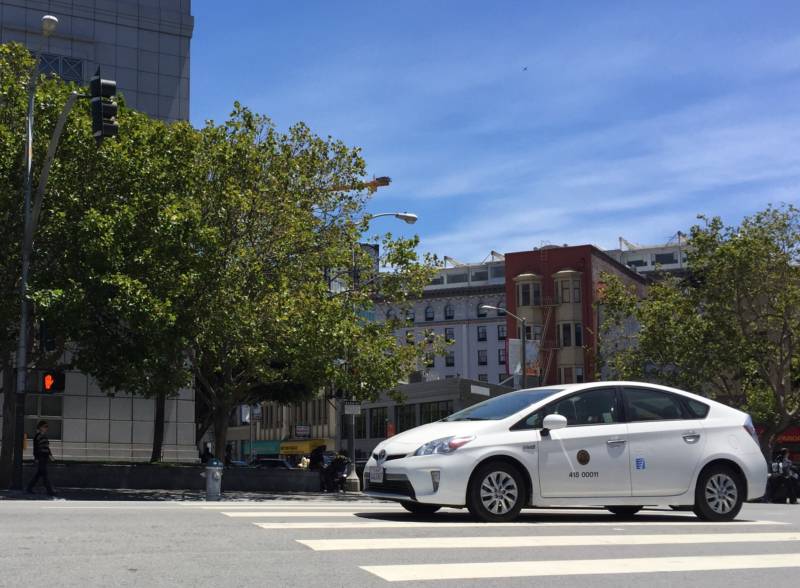Telematics technology, according to Yee and safe-streets advocates, has been helpful in dramatically reducing collisions in cities such as London and New York, by changing driver behavior. The San Francisco Municipal Transportation Agency installed similar technology in its buses in 2010, resulting in a 50 percent reduction in collisions.
"Crashes are not accidents. They are predictable and preventable, and we know that we have the tools in the toolbox to prevent these crashes from happening in the first place. This is one such tool," said Nicole Ferrara, the executive director of Walk San Francisco.
Yee pointed to a city legislative analyst report that found San Francisco paid out nearly $77 million in city vehicle-related legal claims over a five-year period ending last year. The telemetics system, which will cost the city $1.3 million to install and $1.8 million to maintain annually, will help to save lives and money, Yee and safe-streets advocates said.
City Administrator Noami Kelly said the data will help city officials improve driver training, identify neighborhoods where the most collisions are happening, and whether a street needs to be redesigned or whether there's a pattern with the design of a vehicle.
"It's a privilege to drive a city vehicle, and if you have that privilege you need to drive it safely, and so it's a reminder that we need to be responsible with our fleet," Kelly said.
Eventually, Yee and Kelly, who is overseeing the program, would like to expand the technology to use sensors and other tools that could help vehicles detect pedestrians, in blind spots, for example.
About 30 percent of the city's 8,000-vehicle fleet currently has the tracking technology. The legislation, however, does not cover law enforcement vehicles, but Yee and Kelly say they are in discussions with law enforcement officials and their unions to address concerns.
The legislation also does not cover vehicles contracted with the city, but Yee is currently working to address that with future legislation.
In addition, Kelly said she plans to roll out a new online driver training program for city workers later this year. City workers can face a range of disciplinary action for driving dangerously, Kelly said, from a letter of reprimand to being fired.
Yee said his legislation will mean that when it comes to city workers "we will know what you're doing, will know where you're going, and we will know how fast you're going."
The legislation is part of the city's Vision Zero efforts to achieve zero traffic deaths by 2024.
